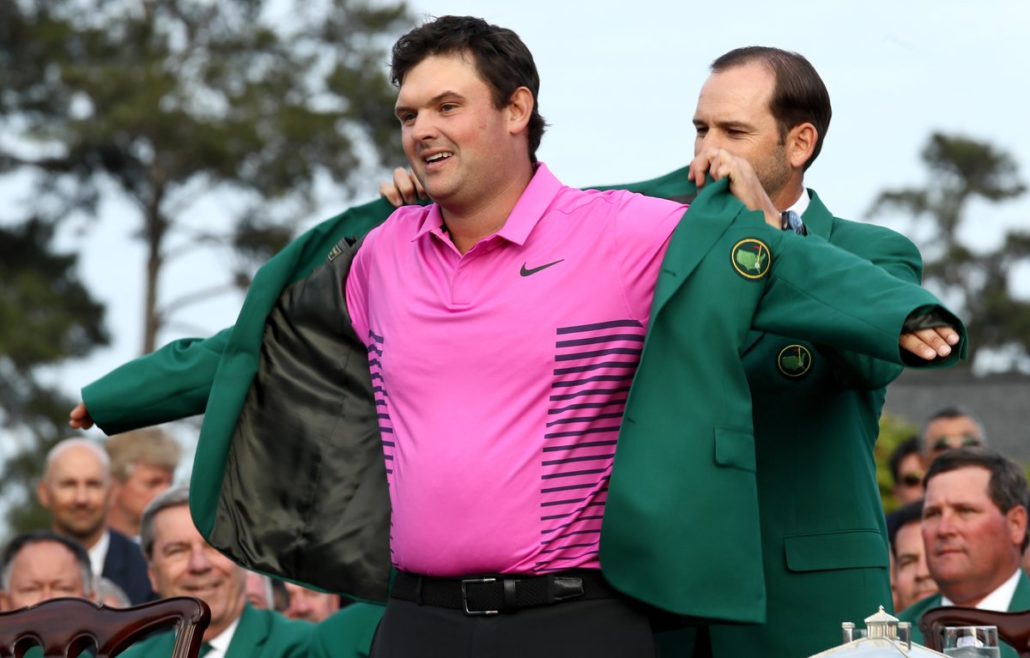The European Tour’s decision to add Saudi Arabia as a destination for the new season is something we should be talking about.
What role do modern sport stars and their actions play outside their arenas?
It’s a question that has been applied to golf (think Rory McIlroy or Ernie Els playing golf with Donald Trump), cricket (Australia’s ball tampering), rugby (Australian star Israel Folau’s stance on homosexuality), American football (Colin Kaepernick’s refusal to stand during the national anthem in protest against racial injustice) and Dennis Rodman schmoozing with Kim Jong-un.
Are these sportspeople merely entertainers turning up for spectators’ delight and when do their personal lives and opinions become public? Dustin Johnson, the world’s best golfer, and Masters champion Patrick Reed have signed up to welcome Saudi Arabia on to the European Tour in yet another hyperbole-filled press release.
Part of the release read: ‘There will also be a special focus on families, community, charity and junior development as the Kingdom looks to develop its golfing pedigree.’ That line was striking as one just needs to type a few key words into Google and you’ll find out more about what kind of ‘challenges’ some family members find themselves dealing with in the soon- to-be host country.
Kate Allen, Amnesty International UK’s director, says, ‘Players on the European Tour ought to be aware that Saudi Arabia’s much-hyped “reforms” in the country are largely a mirage.
‘Peaceful critics of the Saudi government are being thrown into prison at a faster rate than ever, joining existing prisoners of conscience like the blogger Raif Badawi.
‘And despite the promised lifting of the driving ban this year, women are still kept firmly in the backseat in virtually every aspect of life in Saudi Arabia – they are required to have permission from a male guardian to get a job, to enrol in higher education, to travel or to marry.
‘We’re not saying that players on the European Tour should boycott Saudi Arabia – but they certainly should go with their eyes wide open.’
That puts world stars like Johnson and Reed (and many more who will be turning up in Saudi Arabia next year) in the spotlight.
Where do they position themselves?
Are they just golfers turning up and playing for obscene appearance fees and equally obscene prize money, or are they global personalities who have have direct or indirect assumptions tied to their actions?
Will any golfer speak out against taking a pro event to a questionable destination or will it run as normal? What responsibility, if any, do the likes of the world No 1 and the man in the Green Jacket have when it comes to having an opinion on matters bigger than sport as it transcends into society?
There are many questions, some of which will be answered, with (many) others ignored.
The time for a conclusion is set for January 2019 and let’s hope many more will be drawn into this conversation.
I for one will be watching to see how Saudi Arabia performs as a host venue and how the implementation of the event with regard to all members of ‘families’ plays out. But again, golf and golfers are not alone when it comes to the problem of separating sport from reality.
Saudi Arabia isn’t the only country with ‘unique’ standpoints and is merely used as an example in this piece, with Qatar – another European Tour stop – regularly highlighted as having atrocious conditions for migrant workers particularly when it comes to the 2022 World Cup stadiums. Yet the players continue to get on their chartered flights and plunder the prize purse on offer.
Is that what professional sport is becoming? A ‘money first, no questions second’ sport where you grab the cash while it’s on offer and leave opinions about the life that surrounds the course to someone else.
Taking the European Tour to new venues around the world is great in theory, but it brings with it a number of challenges in practice, particularly as society becomes more ‘woke’ with each passing year.
Rightly, there should be no compromise on human rights, gender equality, gender pay (a previous Big Issue) and a host of other issues that have plagued previous generations. What will this generation’s response be?
– Your feedback is encouraged and can be sent to [email protected] and we will publish the best received.







